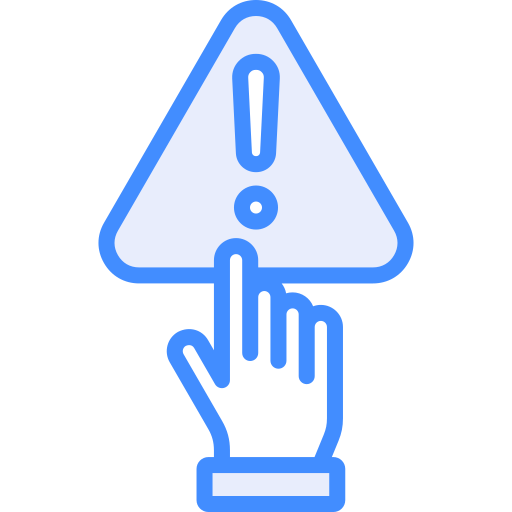Payday Lenders in Florida
Payday Loan Laws
- Fla. Stat. § 560.404: Requires payday lenders to be licenced in the State of Florida.
- Fla. Stat § 560.402: Lays out terms for repayment plans that provide for equal installments over at least 90 days when a borrower cannot pay and prohibits additional fees and interest on these plans.

Loan Terms and Conditions
Maximum loan amount: $500 (single payment)/ $1000 (installment)
Maximum Interest Rate: 391%
Minimum loan term: 7 days (single payment)/ 60 days (installment)
Maximum loan term: 31 days (single payment)/ 90 days (installment)
Number of rollovers allowed: None
Finance Charge: $5 plus 10% of loan amount
Legal action: 5 Years
Certified Payday Lenders in Florida
| Company Name | Company score | License Status |
| Big Picture Loans, LLC | 7.8 | Valid |
| Populus Financial Group, Inc. | 7.6 | Valid |
| CNG Financial Corporation | 7 | Valid |
| Mobiloans, LLC | 6.5 | Valid |
| Kashia Services | 6.3 | Valid |
| DFC Global Corp. | 5.3 | Valid |
History of Florida Payday Loans
How to file a complaint
- ADDRESS
- 200 E. Gaines Street, Tallahassee, FL 32399
- 850-487-9687
- Website
Florida Payday Loans Debt Relief
How to Get out of Payday Loan Debt?
Types of Quick Loans in Florida
Alternatives to Payday Loans in Florida
Personal Loans
Personal loans are an attractive solution for borrowers in Florida who require funds for various reasons such as debt consolidation, home improvements or unexpected expenses. Since these unsecured loans don't require collateral security they can be used however is best suits you. Borrowers with good credit may be eligible for lower interest rates and better terms. Personal loans typically have fixed interest rates and set repayment periods, which can make budgeting and planning easier. But borrowers should also be wary of things like origination fees or prepayment penalties that can add significantly to the total cost of their loans.
Bridge Loans
Bridge loans are short-term loans that are used to bridge the gap between two financial transactions, such as the sale of a property and the purchase of a new one. In Florida, bridge loans are commonly used in the real estate market, where buyers may need to act quickly to win the bid on a new property while waiting for the sale of their current property to close. Bridge loans typically carry higher interest rates and fees due to their short-term nature and higher lender risk. Borrowers should carefully assess both costs and risks before borrowing one and create a repayment strategy in place in order to repay it as quickly as possible.
Home Equity Loans
Home equity loans allow homeowners to use the equity in their home as collateral to borrow against. Equity can be defined as the difference between its current market value and outstanding balance on a mortgage loan contract. In Florida, home equity loans are commonly used for home improvement projects, debt consolidation, or other major expenses. Home equity loans typically have fixed interest rates and set repayment periods, which can make budgeting and planning easier. However, borrowers should be aware that if they are unable to repay the loan, they risk losing their home. Interest rates and fees on home equity loans can vary depending on the lender and the borrower's credit history.
Bad Credit Loans in Florida
Florida bad credit loans cater to borrowers with poor credit scores or limited credit histories. Lenders charge higher interest rates and fees on these loans, and the amount borrowed may also be lower due to the higher risk involved. Secured and unsecured loans are available, with collateral required for secured loans. Borrowers should research and compare terms and fees from different lenders before borrowing, as costs of such loans can be significantly higher than traditional loans. Proper evaluation of loan terms, timely payments, and responsible use of credit can help rebuild credit scores over time.
Florida Small Business Loans
Small business loan options in Florida:
- SBA loans: Low-interest loans backed by the Small Business Administration that can be used for a variety of purposes, including working capital, equipment purchases, and real estate.
- Business lines of credit: Loans that provide businesses with a line of credit they can draw from as needed, with interest only paid on the amount borrowed.
- Equipment financing: Loans that allow businesses to borrow against outstanding invoices, providing cash flow for operations.
- Invoice financing: Loans that allow businesses to borrow against outstanding invoices, providing cash flow for operations.
- Merchant Cash Advance: Loans that provide cash upfront in exchange for a portion of future sales..
VA loans in Florida
VA loans are loans that are available to veterans and active-duty service members, and are guaranteed by the Department of Veterans Affairs. In Florida, VA loans are commonly used to purchase a home or refinance an existing mortgage. VA loans typically offer lower interest rates and more flexible requirements than other types of loans, due to the government guarantee. Borrowers with VA loans may be able to finance up to 100% of the home's value, with no down payment required. It's important to work with a lender who is experienced in VA loans to ensure that you get the best terms and benefits available.
Florida Student Loans
Many options are available to Florida students to help finance their college education. These options include:
- Federal Student Loans: Low-interest loans backed by the federal government that can be used to pay for education expenses.
- Florida Bright Futures Scholarship Program: Merit-based scholarships for Florida high school graduates who meet certain academic and community service requirements.
- Florida Student Assistance Grant (FSAG): A need-based financial aid program offered by the state of Florida to eligible undergraduate students who demonstrate financial need.
- Access to Better Learning and Education (ABLE) Grant: Need-based grants for Florida undergraduate students attending eligible private, non-profit colleges or universities in Florida.
- Private Student Loans: Loans offered by private lenders that can be used to pay for education expenses, with interest rates and terms that can vary widely.
Florida Income Information
United States Census Bureau. “Poverty in the United States: 2021.” Accessed on April 18, 2023.
United States Census Bureau. U.S. Census Bureau QuickFacts: Florida. Accessed on April 18, 2023.
Florida Payday Lender Complaints
| Company Name | Count |
| Big Picture Loans, LLC | 32 |
| Populus Financial Group, Inc. (F/K/A Ace Cash Express) | 19 |
| CNG Financial Corporation | 14 |
| Mobiloans, LLC | 13 |
| Kashia Services | 13 |
| DFC Global Corp. | 9 |
| Total Complaints | 415 |
Consumer Financial Protection Bureau. Consumer Complaint Database. Accessed on April 18, 2023.
Most Common Issues
| Complaint type | Count |
| Unexpected fees or interest | 108 |
| Struggling to pay loan | 99 |
| Received loan didn’t apply for | 39 |
| Problem with payoff process | 34 |
| Can’t contact lender | 31 |
What are the main reasons residents of Florida apply for payday cash advance online or offline
Payday loans are typically used for nonnegotiable everyday expenses like your rent, utilities, and groceries. Per data reported by Pewtrust, the percentage of reasons described below
| Reason | Share |
| Regular Expenses (Utilities, car payment) | 53% |
| Unexpected emergency/expense | 16% |
| Rent/Mortgage | 10% |
| Something Special | 8% |
| Other | 5% |
| Did not answer | 2% |
Payday Lenders by City
- Jacksonville
- Miami
- Tampa
- Orlando
- St. Petersburg
- Hialeah
- Port St. Lucie
- Tallahassee
- Cape Coral
- Fort Lauderdale
- Pembroke Pines
- Hollywood
- Gainesville
- Miramar
- Coral Springs
- Lehigh Acres
- Palm Bay
- Clearwater
- West Palm Beach
- Brandon
- Spring Hill
- Miami Gardens
- Pompano Beach
- Lakeland
- Davie
- Riverview
- Sunrise
- Boca Raton
- Deltona
- Plantation city



